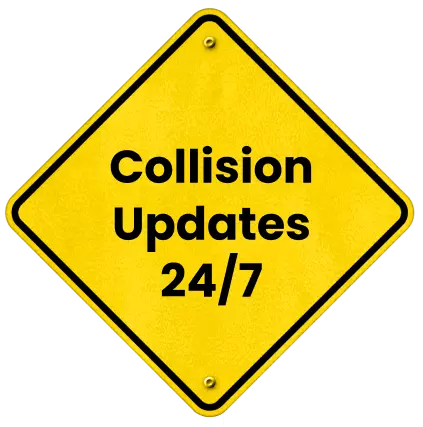
Truck vs. Car Crashes on I-5: Who Bears Liability and Why?


Collisions between commercial trucks and passenger vehicles on Interstate 5 can be devastating. Due to the sheer size and weight of tractor-trailers, even a minor impact can result in serious injuries, extensive property damage, and long-term financial consequences. Understanding I-5 truck accident liability, the regulatory framework governing commercial vehicles, and the evidence needed to support a claim is critical for victims seeking compensation.
Truck crashes also tend to have far-reaching effects beyond the immediate collision. Secondary accidents, traffic delays, and emotional trauma for all involved can complicate recovery. Recognizing the dynamics of truck-versus-car collisions is essential not only for legal purposes but also for preventing future incidents through informed driving practices along the heavily trafficked I-5 corridor.
Common Scenarios in Truck and Car Collisions
Truck-versus-car accidents along I-5 often follow similar patterns:
- Passenger vehicles merging or changing lanes too quickly: Particularly in high-traffic areas such as the Portland Metro area, the Sacramento Valley, and the Los Angeles–San Diego corridor.
- Brake-related incidents on steep grades: Such as the Grapevine segment, where descending trucks may collide with slower vehicles.
- Rear-end collisions: Frequently caused by heavy traffic, reduced visibility in rain or fog, or distracted driving.
- Turning or intersection accidents: Especially involving trucks entering or exiting highway ramps in urban zones such as Tacoma and Sacramento.
- Regulatory influence on liability: Commercial truck operators must follow federal and state regulations, which can significantly affect fault and compensation.
In addition to driver error, external factors such as adverse weather, road construction, or poorly maintained infrastructure can contribute to these collisions. Truck drivers operate under strict schedules and tight delivery deadlines, which can increase pressure and fatigue, further elevating risk. Understanding these patterns can help both drivers and legal teams anticipate challenges when investigating a claim.
Regulatory Factors That Influence Liability
Trucking companies and drivers must comply with hours-of-service regulations limiting consecutive driving hours, mandatory rest breaks to reduce fatigue-related crashes, vehicle inspection and maintenance requirements, and proper documentation of cargo and weight limits to prevent overloading.
Failure to follow these regulations can increase a trucking company’s liability in an I-5 truck accident liability case. For example, if a fatigued truck driver ignores hours-of-service rules and causes a crash, both the driver and the employer may be held responsible. Trucking companies are also responsible for ensuring their drivers complete required safety training, adhere to federal guidelines, and maintain vehicles to prevent mechanical failures that can result in catastrophic crashes.
Types of Evidence in Car-Truck Crashes
Successfully proving liability in a car truck crash on I-5 often requires a combination of documentation, expert testimony, and thorough investigative work:
- Driver logs and electronic logging devices (ELDs): Verify compliance with FMCSA hours-of-service rules.
- Inspection and maintenance records: Confirm that the truck was in proper working condition.
- Dashcam or surveillance footage: Provides a visual account of the collision dynamics.
- Police reports and witness statements: Offer context on speed, weather, and traffic conditions.
- Vehicle black box data: Modern commercial trucks often record speed, brake application, and steering inputs.
- Accident reconstruction reports (if applicable): Help demonstrate how the crash occurred, especially with multiple vehicles or complex factors.
- Preserving evidence quickly: Essential to prevent complications in insurance negotiations or legal proceedings.
Preserving this evidence immediately after a crash is essential, as even small gaps can complicate insurance negotiations or legal proceedings.
Legal Nuances Across California, Oregon, and Washington
Liability in truck-versus-car accidents can be complex due to the interplay of state law, federal regulations, and comparative negligence rules.
In California, victims generally must file personal injury claims within two years, and compensation can be reduced by the percentage of the victim’s own fault under the state’s pure comparative fault system. Oregon also allows two years to file, applying comparative fault to reduce recoverable damages proportionally. Washington provides three years to file personal injury claims and follows comparative negligence principles.
Commercial truck accidents often involve multiple parties, including the driver, trucking company, cargo owners, and maintenance providers.
Calculating Damages in Truck Accidents
The scale of injuries and property damage in commercial truck I-5 injury claims can be significant. Damages often include medical expenses such as hospitalization, surgery, therapy, and ongoing care, as well as lost wages and diminished earning capacity. Victims may also seek compensation for pain and suffering or emotional distress, vehicle repair or replacement costs, and, in some cases, punitive damages if the truck driver’s or company’s negligence was particularly egregious.
An experienced attorney can help document these losses, coordinate with medical and financial experts, and build a compelling case to secure fair compensation for all aspects of the harm suffered. Beyond the immediate financial costs, claims may also consider long-term rehabilitation, ongoing medical treatments, and adjustments needed for permanent injuries.
Taking Action After a Truck vs. Car Collision
After a collision on I-5, it’s natural to feel overwhelmed. Focusing on recovery while protecting your legal rights is essential: seek immediate medical attention, document injuries and vehicle damage, and avoid giving recorded statements to insurance adjusters without legal counsel. Reaching out early to an attorney experienced with accident cases on I-5 ensures critical evidence is preserved and deadlines are met.
For those affected by these serious accidents, professional guidance can make a real difference. Contact an I-5 Accident Lawyer at (888) 511-4558 or contact us to schedule a free consultation where you’ll be able to speak with an attorney who understands the physical, emotional, and financial challenges of I-5 truck accident liability cases, helping you navigate the aftermath with confidence and care.
While the road to recovery may feel overwhelming, proper legal guidance, documentation, and support can help victims focus on healing, rebuilding, and moving forward.







